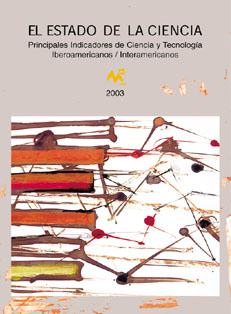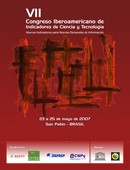The result of the first meeting of the Andean sub region which was carried out on December 3, 2004 in Quito, Ecuador, lead to the creation of the Subregional Andean Web, which coordination will be in charge of Carmen Echeverría of FUNDACYT, Ecuador, during 2005. Participants of the following national science and technology institutions took part in the meeting: Erick Meave, CONACYT (Bolivia), Sandra Daza, OCyT (Colombia), Carmen Echeverría, FUNDACYT (Ecuador), Benjamín Marticorena, CONCYTEC (Perú) and Grisel Romero, MCT (Venezuela).
Objectives: 1- prepare a plan of group activities in science, technology and innovation indicators subject and, 2- name the coordinator of the Andean sub region in 2005.
The next items had been defined as activities to be developed in 2005: • Homogenize concepts: prepare a theorical and conceptual synopsis which constitutes a common database for the countries of the sub region.
• Basic Indicators Production: Systematize the information set out by each country. Improve the activities and help other countries which are starting to do them, as in the case of Bolivia. One of the instruments will be the training and technical support.
• New indicators: aimed to indicators development of social perception and knowledge appropriation. The proposal will be presented in common projects.
• Strategic points: prime interest for the sub region. The developement of indicators which reply the necessity of technology and innovative information required by Pymes.
• Circulation of the Sub regional information: generate mechanisms in order to spread the information of the sub region. Make the data base development accessible through the web.
For the development of the actions indicated, it was agreed to elaborate documents in which necessities and strengths of each country were expressed. It was delegated to each country representatives the responsibility of consolidating the information contributed by the country members.
> Ver acta de la reunión

